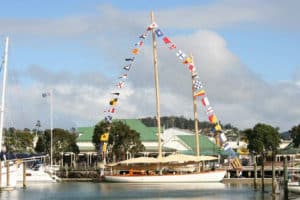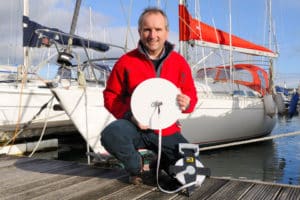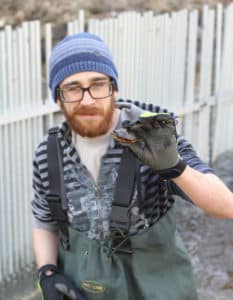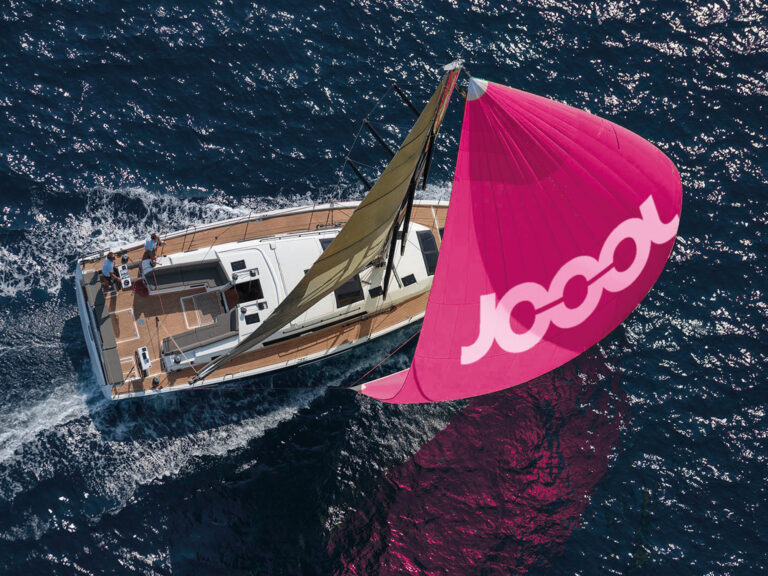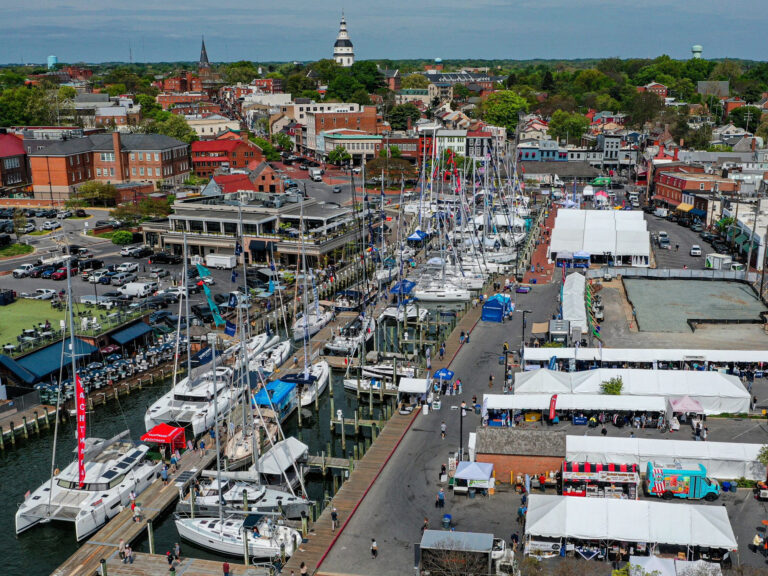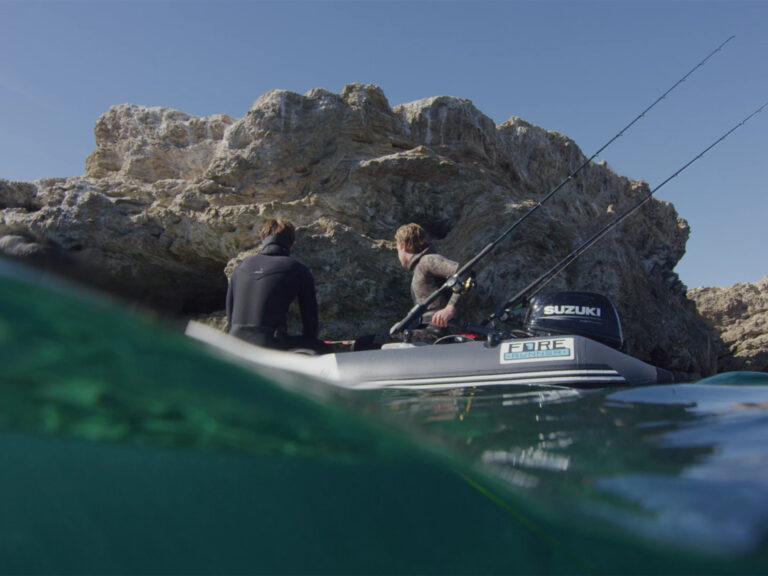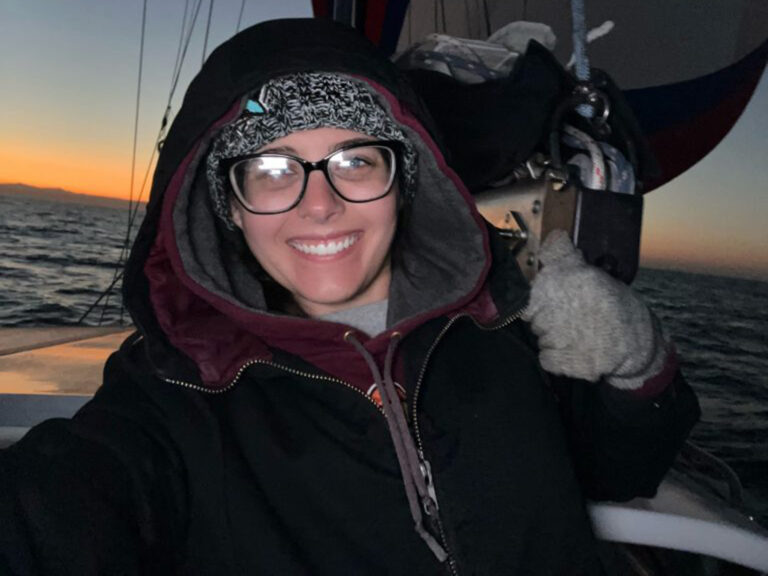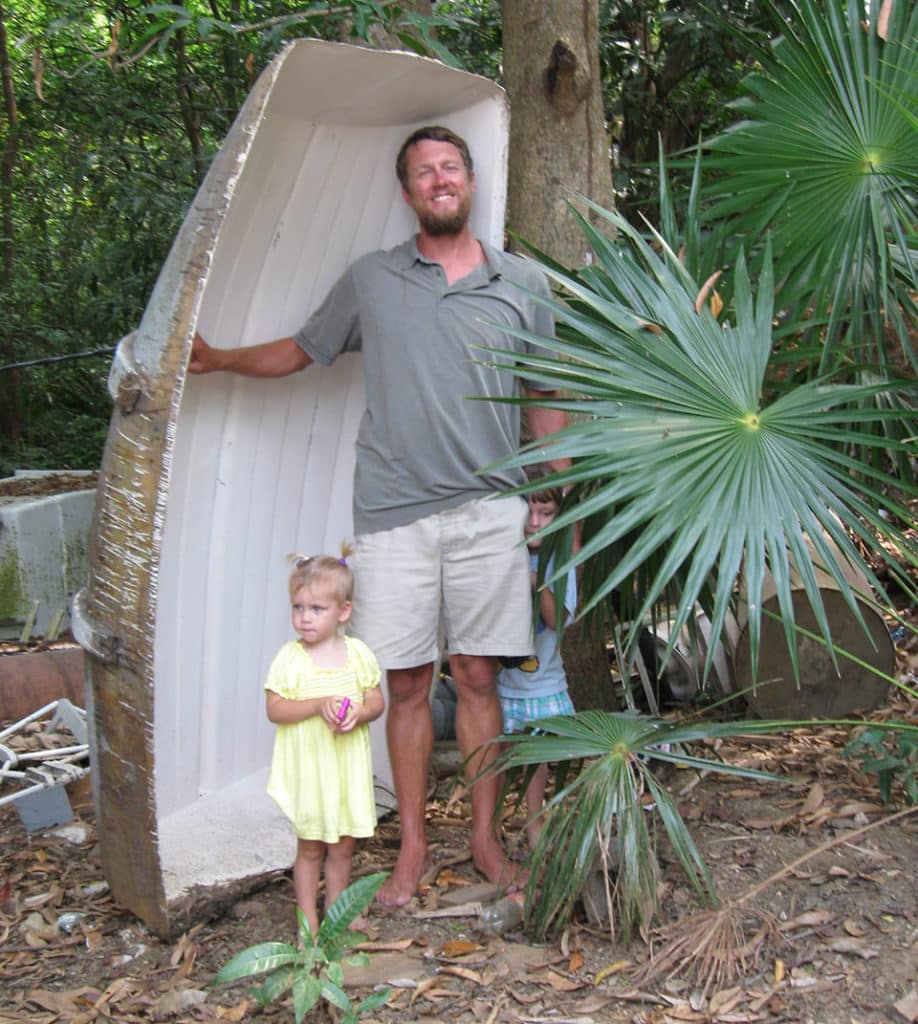
Ben Zartman
What the adage leaves unsaid is the often strange and unexpected nature of that repetition. Who would’ve thought, when Danielle, my wife, and I first sailed into French Harbor, at Isla de Roatán, that eight years later we’d return on an almost identical errand? What made it considerably stranger was that the surrounding circumstances were so different.
That first time, our dinghy had been stolen while we slept at anchor in a mainland lagoon while en route from Guatemala to Isla de Utila. It’d taken several frustrating days of fruitless searching before we were finally steered to Sherman Arch’s boatbuilding operation at French Cay, on Roatán, the largest of Honduras’ Islas de la Bahía group. It hadn’t been too easy going ashore without a dinghy—we had to swim, towing dry clothes and any necessaries in Tupperware boxes, and fetching any supplies back out at great peril to their survival.
Only Sherman’s kindness had saved our cruise that time from being scuppered, but it’d done far more than just that. As a result of our misfortune, we’d been drawn into a unique and wonderful slice of Roatán’s island community. In his beat-up old Nissan pickup, Sherman had carted Danielle and me along to their many family events, where we’d met several generations of Arches and Jacksons, each speaking less English than its successor. But what goodwill their language couldn’t communicate their actions certainly did, and in short order Sherman had pulled a mold off a borrowed pram dinghy and laid up a hull for us inside of that. I learned a lot about fiberglass, watching Sherman and his fellows work; with less than half a dozen power tools and one worn-out wood chisel—honestly—they’d slice old fiberglass boats in half, widen, lengthen and repower them, then sell them as fishing boats, and they built magnificent fast fishing dories in a mold taken off an enormous dugout canoe.
When work on our dinghy lagged due to more pressing matters, it wasn’t a great cause for concern: Capella, our 27-foot Irwin sloop, was comfortably tied up to Sherman’s homemade fishing trawler, and his wife, Petrona, daily plied us with island delights: johnnycakes, breadfruit, fish, blue crab, and fried plantain, not to mention the most delicious grease-laden night of my life when a pig was slaughtered and most of it deep-fried on the spot in a big iron cauldron of lard.
We’d sailed on with much regret, one dinghy and dozens of friends richer than when we’d arrived. Our visas were long expired, and it was well into hurricane season; we had to fight our weary way east against the trade winds and so down to Cartagena, Colombia, by way of Panama. We harbored no expectation of ever returning to Roatán again.
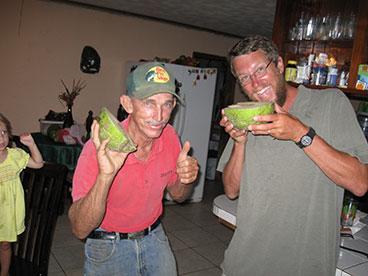
| |On Isla de Roatán, Sherman Arch (left) runs a boatbuilding concern and an iguana preserve. Twice in a decade he’s welcomed Ben Zartman (right) and his family in times of need, lending a hand to offer repairs, entertainment, and food while welcoming the visitors into the full swing of island life.|
So it was with some pleasant anticipation nearly a decade later, sailing north from Cartagena on our 31-foot Cape George cutter, Ganymede, that we realized that we’d have time to swing by Roatán and drop in on our old French Cay friends. “It’ll be nice to go and see them and not be asking for anything,” Danielle said. I knew what she meant: We could return not as the nearly penniless waifs whom we’d been, needing favors that we could never repay, but as cruisers of means with no favors to beg.
But the old adage didn’t mean to let us off that easy, and it struck again with a resounding wallop when a speedboat racing at full throttle through the dark crashed into our dinghy as it quietly lay astern in Helene harbor. The blow was hard enough to splinter oars and seats and a good bit of the aft end, and it launched the dinghy onto Ganymede’s transom, where it landed festooned across the outboard engine. Instead of stopping to see if any people were hurt and to help pick up the floating thwarts and oars, the perpetrator sped off with a cry into the night. (“He were carrying somet’in’ he not want to be caught wit,” was the consensus from other islanders.)
And so we sailed the intervening 15 miles to French Harbor without stopping at all the other bays and bights that pock Roatán’s southern shore, the very ones that time had forced us to skip on the last cruise and that we’d been determined to explore on this go-round. But perhaps it was just as well. Our welcome, once we were recognized, paralleled the returning Prodigal’s, and that same day repairs were begun so the dinghy wouldn’t leak. Several days and lots of Petrona’s good food later, the tender was as good as new, and we were back in the full swing of island life. Always someone was willing to run you to the store, the new shopping mall, or just for a drive on the island’s only highway; there was plenty for the girls to do, between snorkeling on the reef, meeting other children, or playing with the iguanas, turtles, monkeys, and other wildlife that Sherman cares for in his yard. Some things have changed: The island’s cruise-ship traffic has more than quadrupled; condos and resorts have sprung up everywhere; newer and better-stocked grocery stores tempt the supply-starved cruiser. But the hearts of Roatán’s Arches and Jacksons remain the same as ever. So what if once again we arrived in need of help? There may not be a finer people anywhere from whom to seek it, or more ready to give it. As we unhurriedly waited for a weather window to get once more somewhere safe for hurricane season, I couldn’t help but feel that if history had to repeat itself, it couldn’t have picked a better way.

